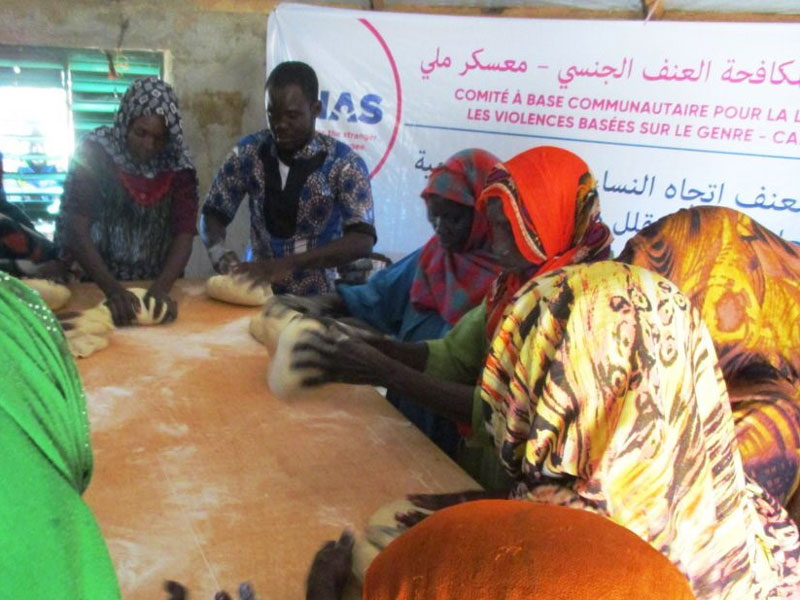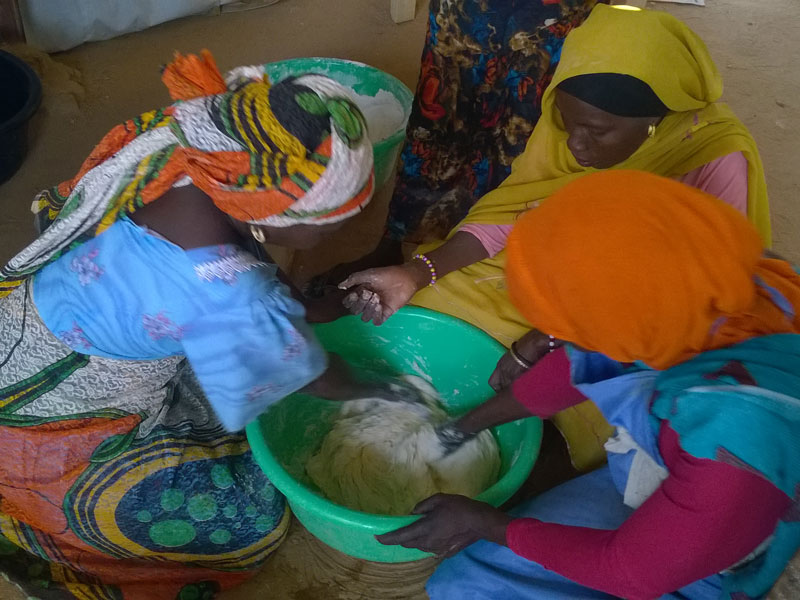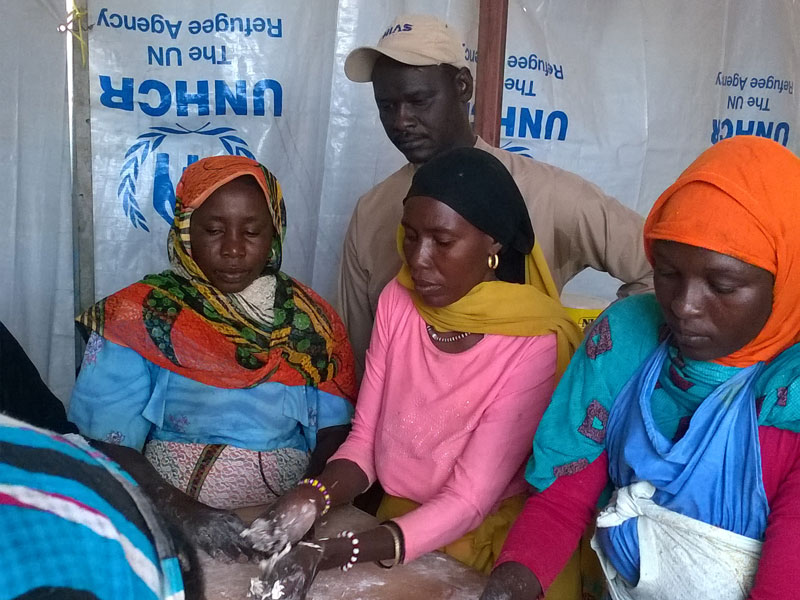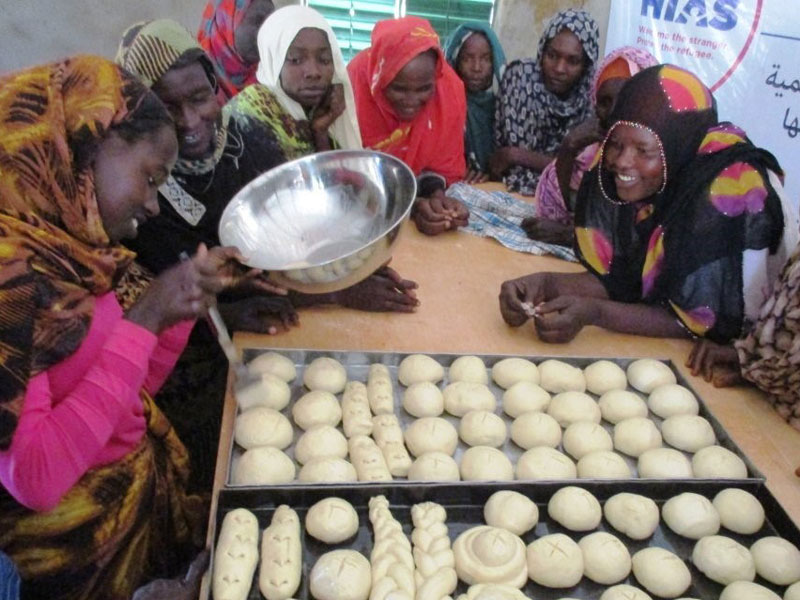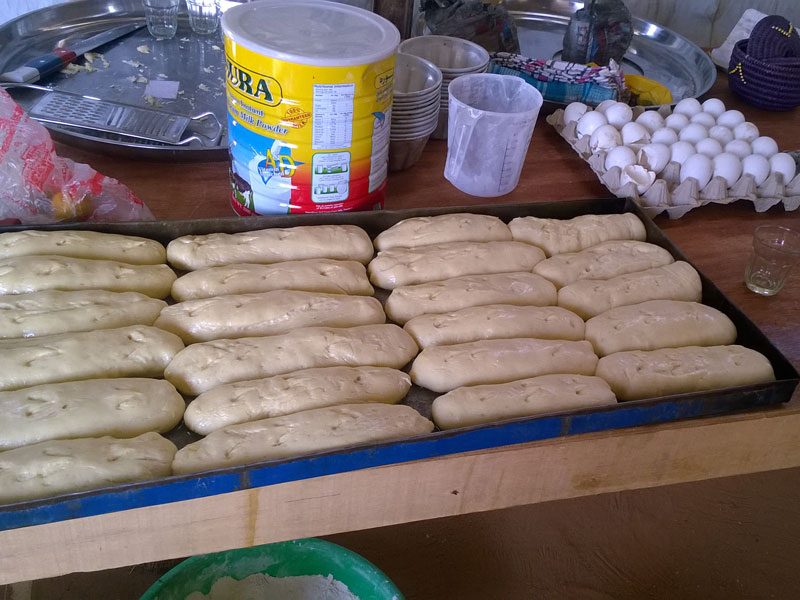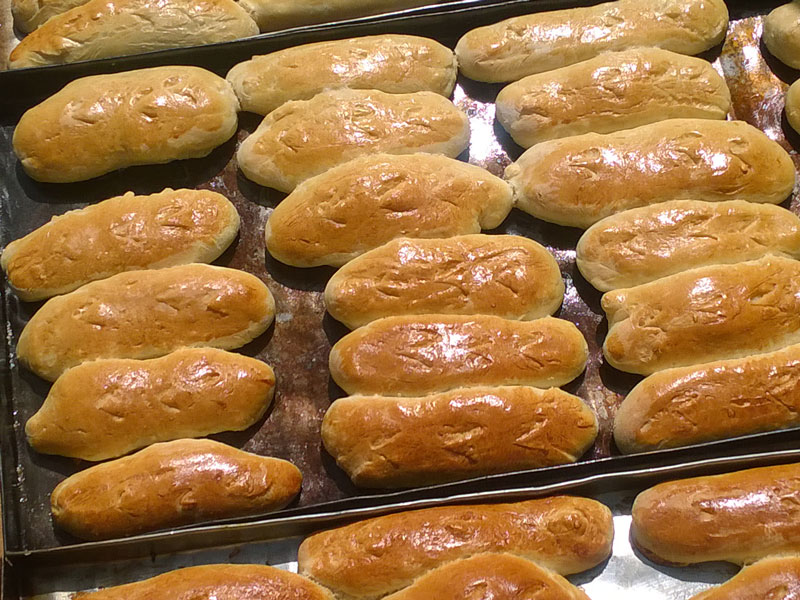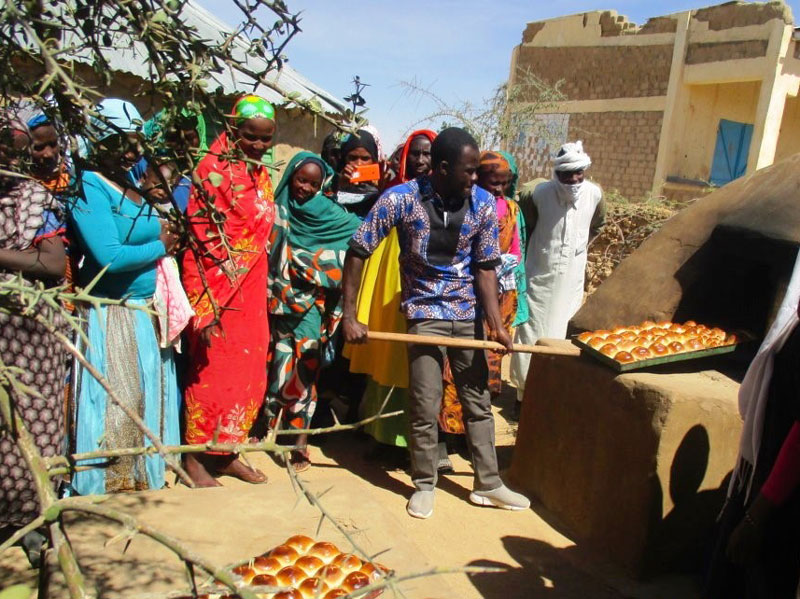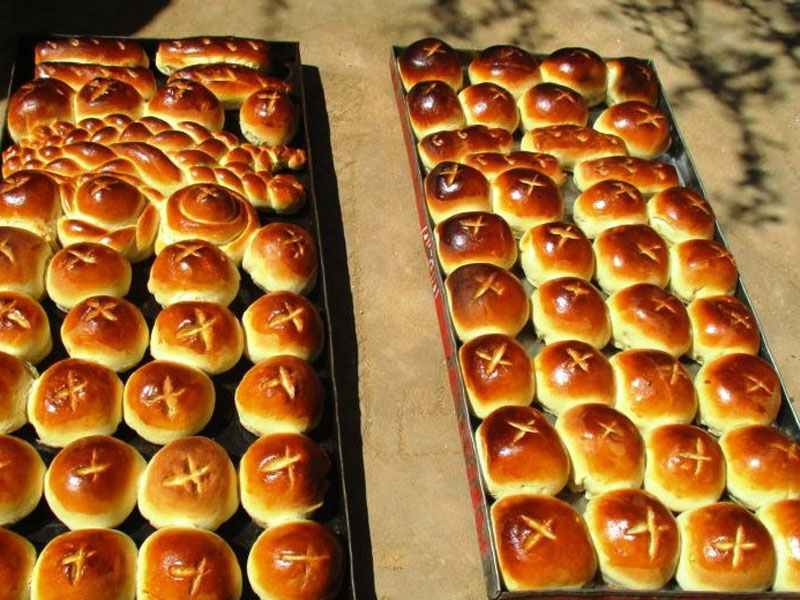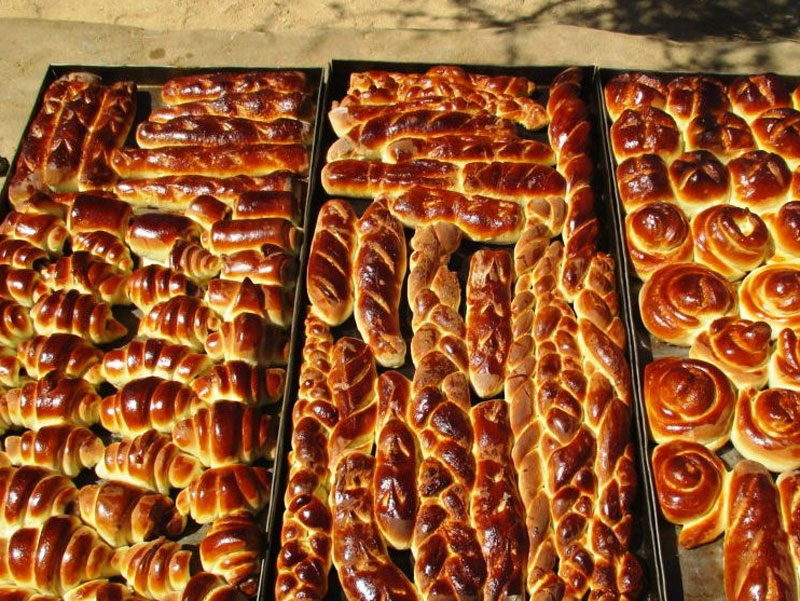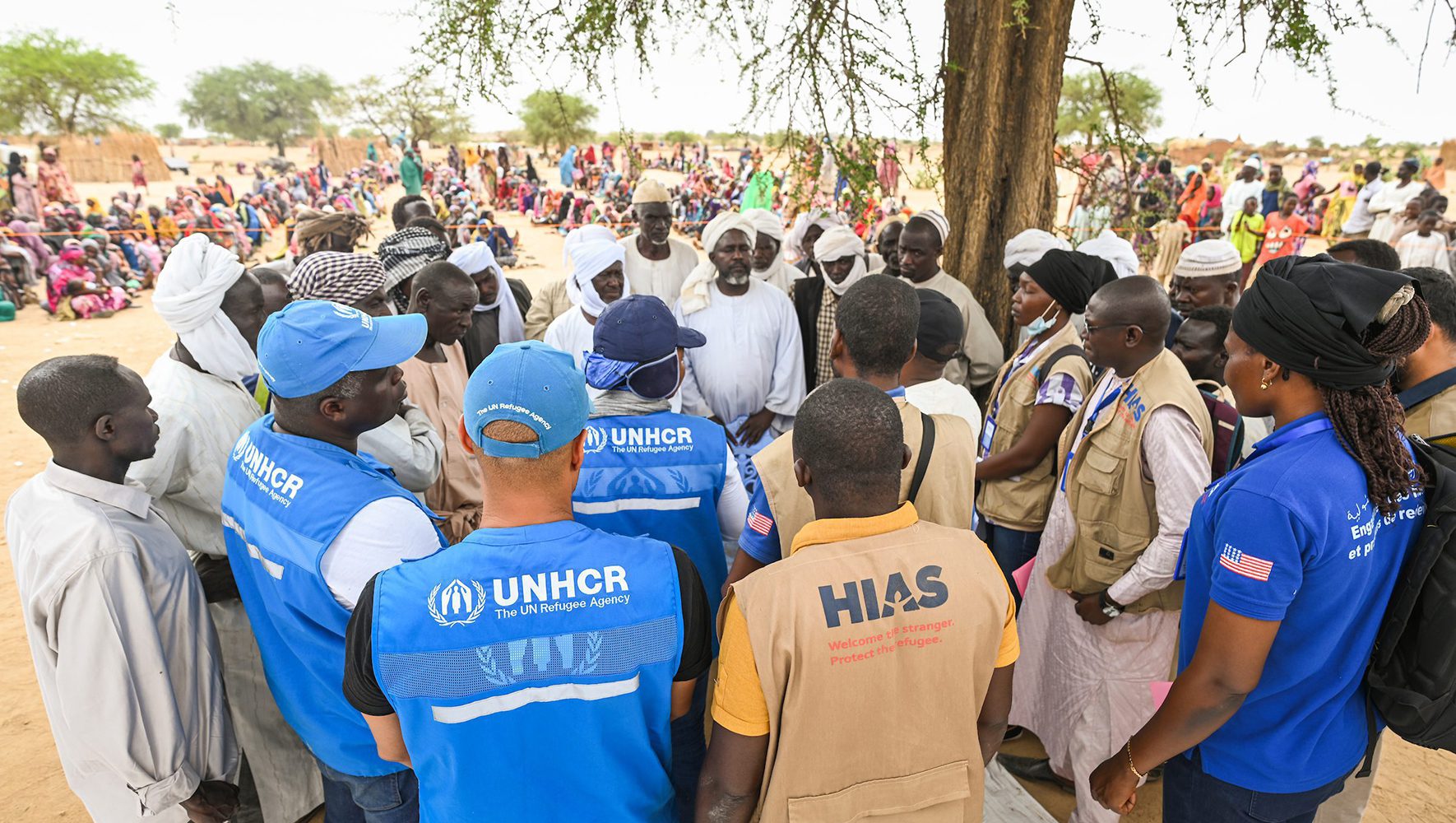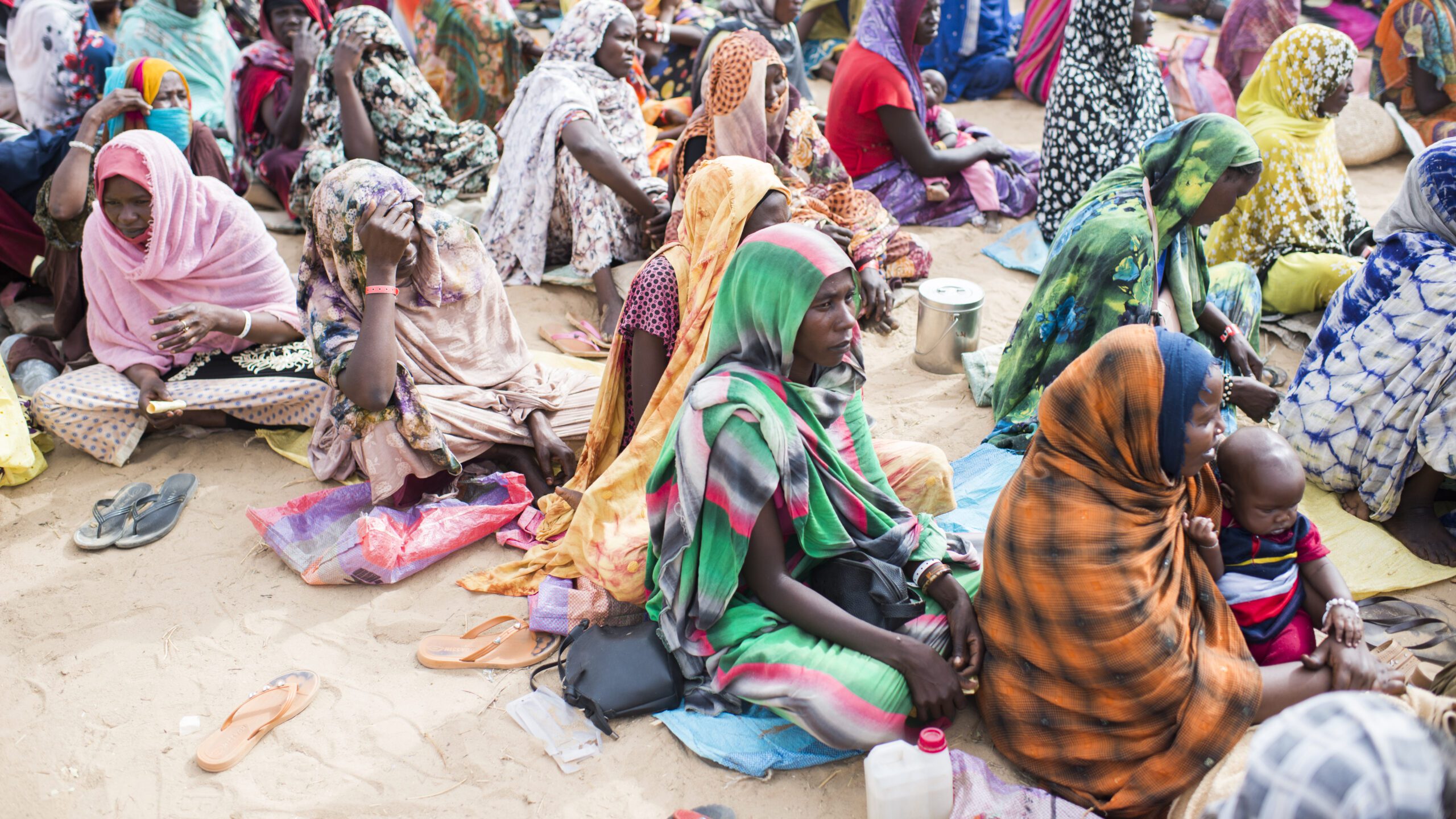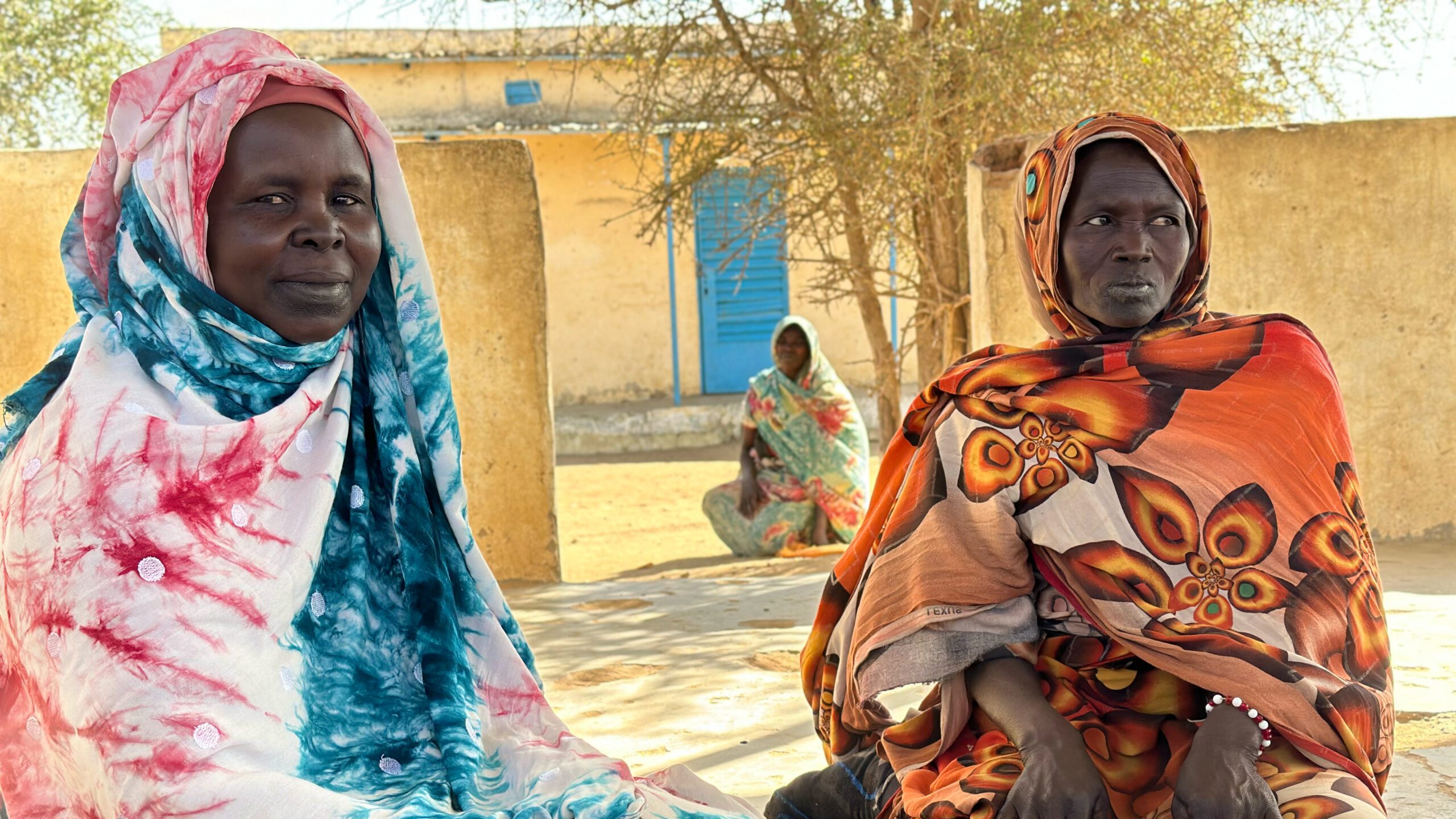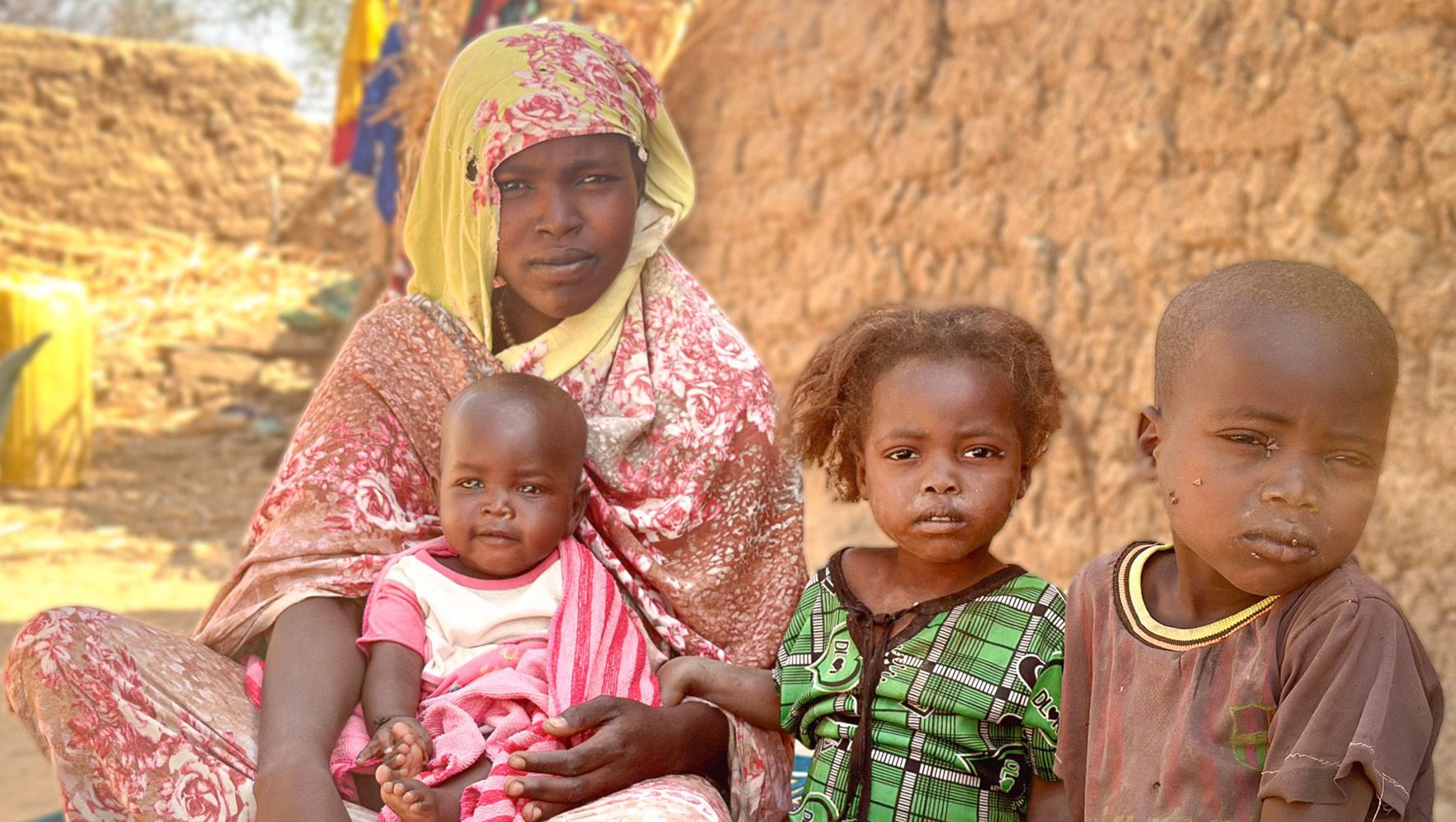Refugee Women in Chad Bake Bread to Make a Living
By Sharon Samber, HIAS.org
Feb 07, 2019
With dough sticking to their hands, women are empowered in refugee camps in Chad.
At a recent bread making training, women learned the techniques of mixing, rolling, braiding, glazing, and baking dough, all part of a project funded by UNHCR and the U.S. State Department and run by HIAS in six different camps of Iriba.
At first, it was a small group of women who were selected for the activity but with the success of the initial group and additional funding from UNHCR, HIAS helped facilitate training for 214 vulnerable women from refugee and host communities. UNHCR awarded $15,000 to HIAS for this project.
In the six camps–Iridimi, Touloum, Amnabak, Amdjarass, Mile, and Kounoungou–the women came from all different walks of life. They are survivors of SGBV; widows; divorced and abandoned women; women with disabilities; and young girls who have dropped out of school. The program went on for months in different locations this past summer and fall.
The intent of this kind of program is to empower women by finding innovative incomes to earn a living. Bread making helps women generate income within the safety and security of the camp. It is difficult for refugees to survive when they are confined to the camps and have no access to gainful employment to feed their families.
The women are now able to support their families with the proceeds they get from selling the bread. Also, since the refugee camps are situated in remote areas away from towns, both refugees and humanitarian workers are happy to have an opportunity to buy freshly made bread from the women.
The skills the women and girls learn enable them to move forward with their lives, particularly those survivors of SGBV, as they find participating in the training and spending time together to be therapeutic.
One participant said: “This is the first time in the camp that an assistance benefits everyone, refugees and host community members alike. It also is a way for women’s empowerment and self-sufficiency.” She added that the quality of the bread was so good that it ought to be ordered by restaurants and cafeterias.
For some, the breadmaking gives them a sense of respect, something they feel they had lost.
One single mother of four who benefitted from the training said, “I learned how to make different types of bread and this has become my source of living. I am now able to take care of my children and can now send them to school like other children.”


